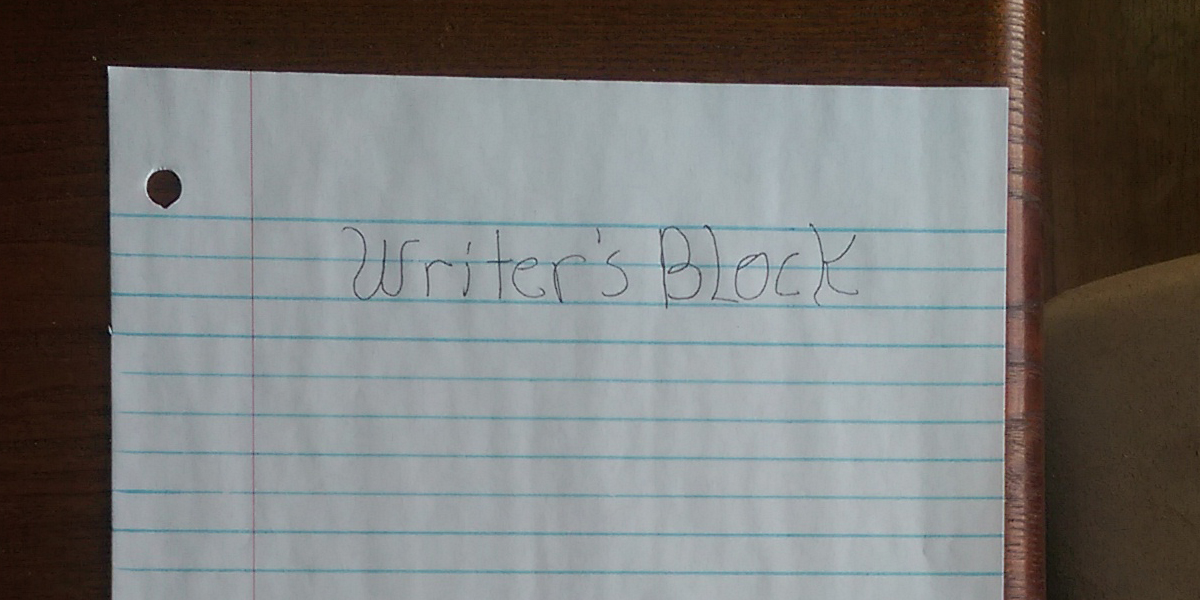Dissecting what Writer’s Block actually is and examining methods recommended by experts on how to break this journalistic dilemma.
Photo by: Colby Duncan
_________________________________________________
I just want to write it down. Why can’t I write down anything?
Writing is something I am very fond of.
So what do I do when writer’s block occurs?
I make it an obligation to write once a day.
Then there are those days or even weeks where I cannot write, when writing seems nearly impossible.
Why is this?
The goal is succeeding to write every day, so I proceed to try.
Well, the truth is it is hard for anyone to write at times.
Throughout history, writer’s block has been an ongoing, documented problem.
Some of the greatest writers on Earth have had writer’s block for up to a couple of years.
Even F. Scott Fitzgerald struggled with different types of writer’s block.
The tragic writer’s block is a disease to the writing man.
All hope is not lost, however, there are many ways to stop the block.
Psychoanalyst Edmund Bergler first described writer’s block as a condition in 1947.
Many have said that writer’s block is just a mentality, but it is so much more than that.
When the human brain is putting up with different levels of stress, a shift in control occurs between the cerebral cortex and the limbic system.
The cerebral cortex is what processes thought and is what maintains our consciousness.
If the cerebral cortex is not running properly then the thought of writing becomes absent or miniscule and very hard to do.
The limbic system is associated with the instinctual processes, such as fight-or-flight response and behavior that is based on deeply ingrained training.
The limited input from the cerebral cortex hinders a person’s creative processes, which are replaced by the behaviors associated with the limbic system.
The change within the brain is unnoticeable and is not recognized while living but is apparent in the mind.
These types of changes within the brain can be varied due to a number of different things such as running out of inspiration, becoming easily distracted, a change or some type of pressure put upon one’s life or career.
Other types of hindrances can be physical illness, the end of relationship, financial pressure, a sense of failure or basically anything that drastically changes emotions and stress levels.
This causes many to believe they are creatively blocked or not good at writing.
It’s not being a bad writer or not knowing how to write, and there are many ways to fix the problem.
There are ways to break through the block by doing creative processes to help the mind become ready to write or properly conditioned to do some writing.
A book published last year, “Go Ahead and Like It,” has some great interpretations on how to get the thoughts out of your head and onto paper.
The book, written by a women named Jacqueline Suskin, describes ways to write by demonstrating certain tools to get the writing flowing and to understand your writing and how what you’re writing can pertain to you.
Suskin uses a unique type of strategy to help refute writer’s block.
Suskin makes a series of lists such as what you like, what you don’t like, what you might like at a certain moment or in the moment at hand.
Even making a list of things you like in a moment where you are upset about something, like being stuck in traffic or stuck in a class that you don’t want to be in.
All of these lists or ideas create a base for the mind to work off of, so when the writing starts the mind already has its key points, which gives the mind something to feed off.
My biggest problem is if I am stressed with work, school or athletics I find it very difficult to write on my own.
Yes, I will do the writing that is needed for my classes, but as far as my own writing, it starts to dwindle dramatically.
My findings that help a lot within maintaining a constant writing bay were to keep a happy medium of time management.
Writing in a journal on a daily basis is a good way to maintain fluent writing.
I myself have a journal like a diary but I have found if I write in it on a daily basis then my writing as a whole will be more constant and more efficient.
As my weeks get busy I get lazy on what to write in my journal, not because I don’t have anything else to write but because I don’t manage enough time for my writing.
After awhile I found if I can manage my time to write then I write, not just think about it.
I don’t know how many times I’ve told myself throughout the day that I need to write in my notebook, but then I still find myself not writing for days on end.
I get so busy that I just can not find the time to write and even when I do manage time, I feel that it is forced upon me and not something that is of my own will.
This is where prioritizing and time management come into play.
Managing and prioritizing time adequately can dramatically decrease stress levels and will give you time to do any type of writing that seems necessary, rather than trying to force something into the everyday schedule.
“Take time to write. It will help you with your studies, your personal life and your relationships. Writing is worth it,” says MBU senior Chelsea Gammon, an MBU Timeline staffer who consistently produces excellent work for this website.
Through dedication you can write every single day.
